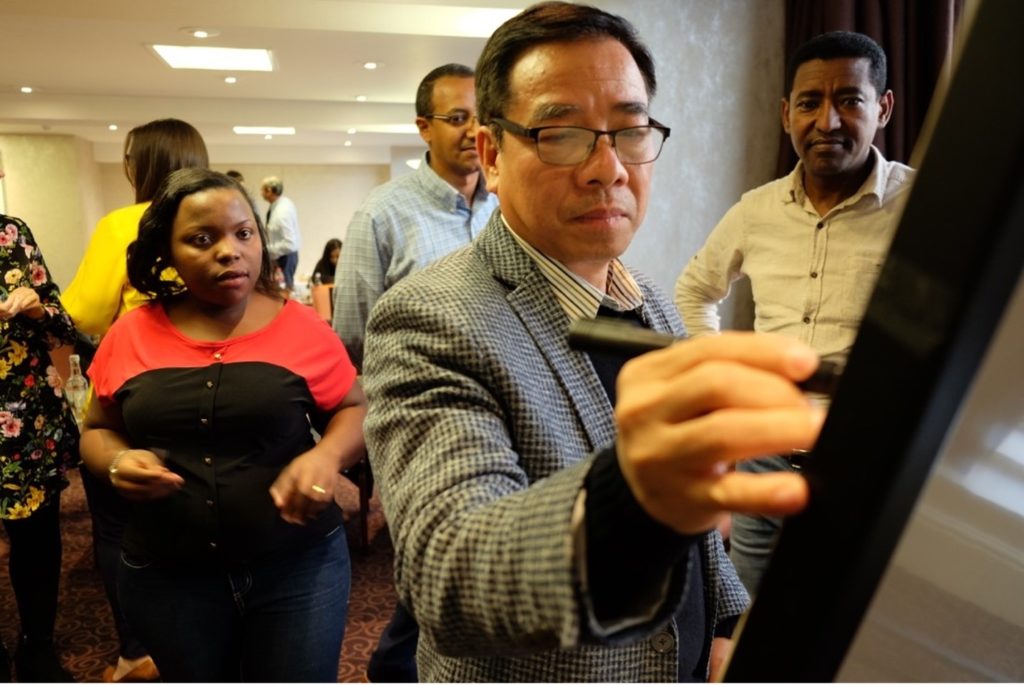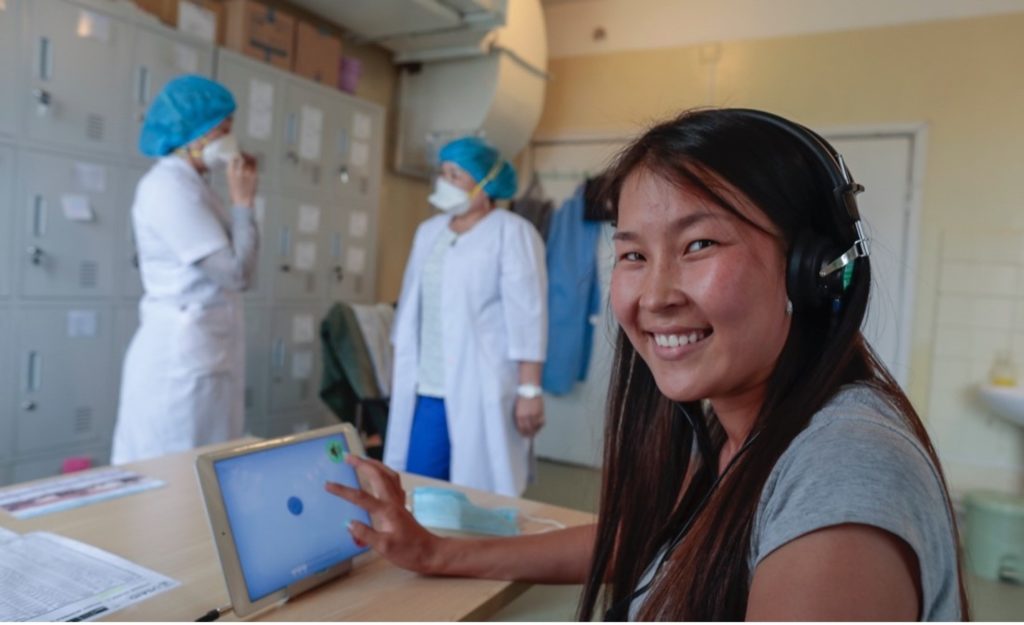In 2020, 1.5 million people died from tuberculosis and an estimated 10 million people fell ill. While TB is often seen as a disease of the past, it remains one of the top infectious disease threats globally.
This World TB Day, Vital Strategies joins the call to “Invest to End TB. Save Lives.” Investments in TB today can help treat thousands of people and advance the global goal to #EndTB.
One of the major challenges facing this global epidemic is multidrug-resistant TB (MDR-TB). MDR-TB occurs when people are infected with TB that is resistant to two of the most effective first-line medicines used in standard treatment. Through the STREAM clinical trial, Vital Strategies Research Division is evaluating shorter, more tolerable MDR-TB treatment regimens.
As Stage 2 of STREAM wraps up, we asked Leena Patel, Senior Technical Advisor at Vital Strategies, to discuss lessons learned from the STREAM trial and the importance of investing in tuberculosis research.
Leena, you’re supporting Vital’s Research Division and its STREAM trial. Can you tell us a little bit more about the STREAM trial and its significance?
Drug-resistant TB affects approximately 500,000 people each year. Yet, treatment success remains challenging. In 2020, only one in three people were enrolled in treatment and most recent data shows that among patients who started treatment, less than 60% were successfully treated. To achieve the global goal of ending the TB epidemic by 2030, we need increased research and innovation, including evidence for shorter, more tolerable MDR-TB treatment regimens.
Vital Strategies’ Research Division is the sponsor of the world’s largest recruited clinical trial for MDR-TB. The trial, STREAM, has more than 1,000 participants enrolled from eight countries in Africa, Asia and Europe across two stages of the trial.
Stage 1 of the STREAM trial generated important evidence that contributed to the World Health Organization’s endorsement of the use of a shorter 9- to 11-month treatment regimen. Although shorter regimens are a step in the right direction, we know that more tolerable, safer regimens are needed. To address this need, Stage 2 of the STREAM trial, which is ongoing, is evaluating the efficacy and safety of an all-oral bedaquiline-containing shorter regimen.
1.1. million pills were supplied without interruption during Stage 2 of the STREAM trial
What are some key lessons that the team has learned from the STREAM trial?
As the largest recruited clinical trial for MDR-TB, STREAM provided an exceptional opportunity to learn from and evaluate key issues related to trial design and implementation and make practical recommendations to inform future trials. A few key lessons our team learned were:
Deep local knowledge and stakeholder relationships are essential for successful implementation.
- Across the two stages of the trial, STREAM was conducted at 15 trial sites across eight countries—all with very different local contexts. Before a site joined the trial, our team conducted site assessments to understand the setting and to evaluate the site’s capacity to implement the trial. This enabled us to effectively adapt implementation for each setting in collaboration with key stakeholders.
Roles and responsibilities must be clearly delineated and communicated to avoid inefficiency and gaps in implementation or oversight.
- As the sponsor of the trial, the Research Division was responsible for overall trial implementation and oversight. To facilitate efficient implementation, we outlined clear delineation of roles and responsibilities and communicated regularly with all partners and trial sites. This strengthened rapport among stakeholders and helped ensure that challenges were identified and addressed as they arose.
Robust supply chains are needed to ensure continuous availability of all clinical supplies and trial medications.
- The Research Division’s trial pharmacists managed complex supply chains to ensure all trial sites had appropriate quantities of trial medications and supplies to avoid treatment interruptions while minimizing costs, storage and waste. The use of a robust forecasting system to estimate site medication and supply needs and longitudinal monitoring of supply chains ensured that even during the COVID-19 pandemic, Stage 2 sites were able to dispense all study medications to trial participants without interruption.
Strengthening capacity of trial sites can help ensure STREAM’S impact is sustainable.
- Clinical trials for MDR-TB are complex, both in terms of design and implementation. Varying infrastructure and research experience across settings with a high TB burden adds to the complexity. To help ensure the impact of our research is sustainable beyond STREAM, an overarching goal of the trial is to strengthen capacity of trial sites. Through a comprehensive capacity-building program, including in-person training, monitoring and supportive supervision visits, and an educational webinar series, trial sites were able to successfully implement STREAM and strengthen their capacity to conduct future research.
The Research Division is taking the time to reflect on the successes and challenges of the STREAM trial to ensure that the knowledge gained and lessons we learned can be leveraged to improve implementation of future trials.


National Centre for Communicable Diseases in Ulaanbaatar, Mongolia
Before COVID-19, TB was the leading infectious disease killer in the world. What can we learn from the COVID-19 pandemic response?
The COVID-19 pandemic disrupted health systems globally and highlighted the urgent need for stronger and more resilient health systems. At the same time, the pandemic has also shown us what is possible and that with a coordinated global effort and investment we have the capacity to address infectious disease threats.
During the pandemic, global partnerships quickly emerged to manufacture and distribute rapid COVID-19 antigen tests and deliver vaccines to low-resource settings. A combination of political commitment, investments and collaboration helped advance the COVID-19 response. The same approach can be applied to ending TB.
Even though TB is preventable and treatable, insufficient global funding and political will has left millions, mainly those in poverty, at risk of TB. We can and must address TB with the same rigor and willpower we applied to COVID-19 to achieve this year’s World TB Day theme: “Invest to End TB. Save Lives.” The clock is ticking for all TB stakeholders to do our part to alleviate the burden and suffering caused by tuberculosis around the world.
To learn more about Vital Strategies Research Division visit here and follow us on Twitter: @VitalStrat
Get Our Latest Public Health News
Join our email list and be the first to know about our public health news, publications and interviews with experts.